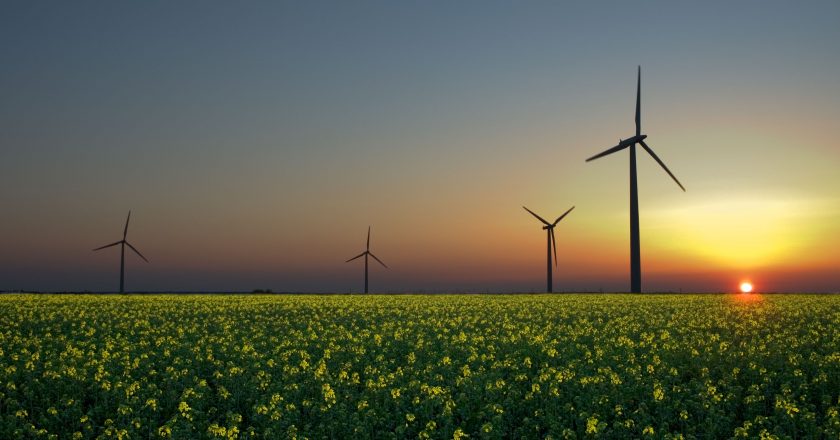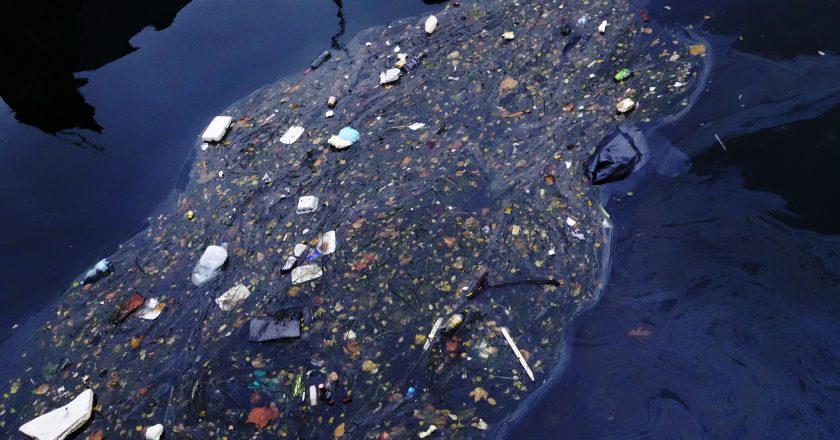In 2018, the Commission will make comprehensive proposals for the next generation of financial programmes for the post-2020 Multiannual Financial Framework (MFF), which is the EU’s long–term budget. The Commission’s proposals will be designed to make it possible for the EU to deliver on the things that matter most, in areas where it can achieve more than Member States acting alone. This requires a careful assessment both of what has worked well in the past and what could be improved in the future.
Deadline: 8 March 2018
Website: https://ec.europa.eu/
Public consultation: Sugars in Food
The European Food Safety Authority (EFSA) is seeking feedback on the approach it plans to take for its upcoming assessment of dietary sugars. The aim of the assessment is to establish a cut-off value for intake of “free” sugars that are not associated with adverse health effects. EFSA’s Panel on Dietetic Products, Nutrition, and Allergies (NDA) has drafted a protocol to define the methods for 1) collecting data (i.e. which data to use for the assessment and how to identify and select them); 2) appraising the relevant evidence; and 3) analysing and integrating the evidence to draw conclusions that will form the basis of the scientific opinion.
Deadline: 4 March 2018
Website: http://www.efsa.europa.eu/
Consultation: Evaluation of the EU’s Strategy on Adaptation to Climate Change
This consultation is part of the evaluation launched by the European Commission in 2016 of the Strategy on Adaptation to Climate Change. The evaluation examines the implementation and achievements of the Strategy compared to what was expected at the time the Strategy was adopted in 2013. It also looks at the evolution of the needs to which the Strategy responds, for example in light of the 2015 Paris Agreement, which treats adaptation to climate change on equal footing with greenhouse gas emission reduction. The evaluation follows the standard framework for the evaluation of EU policies and examines the relevance, effectiveness, efficiency, coherence, and EU added value.
Deadline: 1 March 2018
Website: https://ec.europa.eu/
Consultation: Reducing Marine Litter: Action on Single Use Plastics and Fishing Gear
The objective of this consultation is to provide input, opinions, and data for preparation of follow-up to the Plastics Strategy in relation to marine litter, particularly from single-use plastics and fishing gear.
The upcoming Strategy on Plastics in a circular economy will lay down the foundations of a new plastics economy, where reuse and recycling are fully integrated into production chains, where plastic pollution and its adverse impact on citizens’ lives and the environment are tackled. The Strategy will acknowledge the urgent need for concrete actions to reduce plastic leakage into the environment, in particular in our seas and oceans.
Deadline: 12 February 2018
Website: http://ec.europa.eu/
Novel Food: New Regulation Enters Into Force
The new Regulation on Novel Food is applicable from 1 January 2018. The regulation brings significant improvements and changes to the novel food authorization procedure. The regulation includes an expanded definition for novel food to account for innovation and technology advances in the food sector, a centralized EU-wide authorization system of novel foods and of traditional foods from third countries, a list of all authorized novel foods in the EU, and data protection provisions for the applicants.
Source: https://ec.europa.eu/
The Role of Chemical Industry in Reducing GHG
The European Commission has published a study on the role of the chemical and petrochemical industry in reaching the EU climate targets. The innovative energy technologies considered in the study “Energy efficiency and GHG emissions: Prospective scenarios for the Chemical and Petrochemical Industry” can cut annual greenhouse gas (GHG) emissions by 72.5 Mt of CO2, equivalent to 36% of GHG emissions in 2050, while supporting the sector’s growth. The conclusions are based on a model accounting for fuel prices, GHG allowances and the payback period of technologies such as combined heat and power and carbon capture and storage. The study also concludes there is a need for additional research as identified in the Energy Union Package in order to reach the 2050 climate objectives in a cost-effective way.
Website: https://ec.europa.eu/
MSCA Certificates are Now Available
Marie Skłodowska-Curie Fellowship certificates are now available, upon request, for fellows who have completed a research period within one of the FP7 or H2020 Marie Skłodowska-Curie actions. Marie Skłodowska-Curie Fellowship Certificates can be requested through the project contact person or the legal entity authorised representative (LEAR) or the scientist in charge at the coordinating institution. The Certificate is not compulsory. It is a service offered to fellows requesting proof of their participation in a Marie Curie project.
Source: http://ec.europa.eu/
Erasmus+ Generation Declaration
At the closing event of the Erasmus+ 30th-anniversary campaign, representatives of the Erasmus+ Generation presented the Erasmus+ Generation Declaration to EU decision-makers in Brussels. The document contains 30 concrete proposals that reflect the Erasmus+ Generation’s vision and priorities for the future of the programme beyond 2020 in six key areas: societal challenges, skills gap, civic engagement, inclusion, global dimension, and simplification.
Source: https://ec.europa.eu/
New Data on Public Funding for Universities
The study, fuelled by data from EUA members, is presented in a report and in an online tool. It captures the very latest funding trends in Europe and offers the most up-to-date information on 34 different higher education systems. The analysis reveals that since the 2008 financial crisis, the divide between higher education systems that increase public funding, and those that reduce investment, is getting wider. The study also shows that while 2012 was the most difficult year in terms of cuts, any recovery that can now be detected is slow and fragile.
Source: http://www.eua.be/
Update on how EFSA evaluates genotoxicity
The European Food and Safety Authority (EFSA) has published an update of how it evaluates the potential genotoxicity of substances in food and feed assessments. This scientific opinion provides recommendations on the adequacy of specific tests to establish the genotoxic potential of substances. It also advises on how to use data in a weight-of-evidence approach to conclude on genotoxicity and whether or not it is possible to set safe levels for substances. This opinion can be used by applicants when preparing their dossiers for evaluation and will also support the work of risk assessors and risk managers. Three key issues addressed by the opinion are: 1) the use of the “unscheduled DNA synthesis” test in relation to future assessments and re-assessments; 2) assessing bone marrow exposure in in vivo genotoxicity testing; and 3) whether or not data allow setting of safe levels.
Source: http://www.efsa.europa.eu/

Scientific Evidence for Agriculture Policy
Soil scientists at the European Commission Joint Research Centre (JRC) have been gathering and analyzing soil samples from across Europe. Once the physicochemical soil properties have been analyzed, the JRC will be able to carry out assessments of how the impacts of EU and national land-based policies (such as the Common Agricultural Policy) are manifested through changes in soil characteristics over time. This assessment includes things like the physical and chemical properties of the soil, biodiversity, density, structure, and pollutants present. The soil sampling is done within the framework of a European-wide survey entitled LUCAS (Land Use/Land Cover Area Frame Survey), which is coordinated by the EU Statistical Office, EUROSTAT, and aims to assess changes in land cover and land use across the EU every three years.
Source: https://ec.europa.eu/
Commission Proposes to Ban Seven New Substances
Earlier in December, the European Commission proposed to ban seven new psychoactive substances (NPS) across the European Union, in addition to nine others banned previously during 2017. The seven new psychoactive substances, including those commonly known as “spice”, “herbal incense” and “legal weed”, belong to two categories: four of them are synthetic cannabinoids, with effects similar to cannabis but much more toxic, while the other three substances are synthetic opioids closely related to fentanyl, a substance controlled at international level. According to the European Monitoring Centre for Drugs and Drug Addiction (EMCDDA), these toxic substances are associated with over 170 deaths across the EU and a number of acute intoxications. Currently, these seven new psychoactive substances are not covered by international drugs controls and remain a serious challenge to European public health, especially for young people. Chemistry plays a crucial role in tracing and analysing these substances. Moreover, the ethical side of using chemistry to manufacture illegal substances will be one of the topics of the upcoming EuCheMS Course on Ethics.
Source: http://europa.eu/
Discussing EU Research Infrastructures
InRoad Project has recently organised a workshop in Brussels to discuss pressing issues surrounding EU research infrastructures and to look into after 2020. This project seeks to contribute to a better harmonisation and synchronisation of priority-setting, funding and lifecycle management of Research Infrastructures through the exchange of best practices among the main stakeholders of EU Member States, Associated Countries and also at European level. Additionally, the regional dimension will be considered by integrating Smart Specialisation Strategies in the work conducted. The next InRoad workshop will take place in March, in Sofia, Bulgaria.
Source: http://inroad.eu/

Renewables Accounted for Majority of New EU Power Capacity in 2016
The European Environmental Agency (EEA) has recently published the report ‘Renewable energy in Europe — 2017 update, where it provides an overview of progress in renewable energy in Europe, based on official statistics until 2015 and preliminary estimates for 2016. According to this report, the transition to renewable energy continues in the European Union (EU) but has lost some pace in the past two years. According to new European Environment Agency (EEA) estimates, renewables accounted for 86 % of the EU’s new capacity for electricity generation installed in 2016. Overall, EU Member States also continue to cut more capacity from conventional sources than they install. According to the report, coal was the fuel that was most substituted by renewables across Europe, accounting for roughly half of all avoided fossil fuels and greenhouse gas emissions. EuCheMS is currently involved in the topic of renewable energy sources with its Solar-Driven Chemistry initiative.
Source: https://www.eea.europa.eu/

Circular Economy – Council and Parliament Reach Provisional Agreement
Last month, the Estonian Presidency of the Council of the EU reached a provisional agreement with representatives of the European Parliament on all four legislative proposals of the waste package, also known as the circular economy package. The agreed waste legislative proposals establish binding waste reduction targets and updated rules to decrease waste generation, ensure a better control of waste management, encourage the reuse of products and improve recycling in all EU countries. After formal approval by the Council in the first quarter of 2018, the new legislation will be submitted to the European Parliament for a vote at first reading and to the Council for final adoption.
Source: http://www.consilium.europa.eu/
Upcoming European Union Priorities
The European Parliament, The European Council, and the European Commission have recently agreed on a Joint Declaration on the EU’s legislative priorities for 2018-19. In addition to prioritised legislation from the previous year, this declaration sets out 31 new legislative proposals tabled by the Commission which will be given priority treatment by the Parliament and Council for adoption or substantial progress by the time of the European Parliament elections in 2019. Chemistry relevant proposals include those related with the health of citizens, with a proposal for a directive on the protection of workers from the risks related to exposure to carcinogens or mutagens, as well as circular economy related legislation, with proposals for four new directives on waste. Circular Economy has also been high on EuCheMS agenda, with EuCheMS organising workshops on this topic and participating at EU Circular Economy Missions.
Source: https://ec.europa.eu/
Bulgarian Presidency of The Council
The Bulgarian Presidency of the Council of the EU is taking place from January until June 2018 under the motto “united we stay strong”. According to its programme, the Presidency will look into the need of providing adequate infrastructure for education, training, and research and maintain its current level of funding. In the light of the discussions regarding the post Horizon 2020 Programme, the Presidency will organize a European conference “Food 2030” to provide a platform for discussion of the role of science and innovation for the future of food, healthy eating and the use of future food resources. The programme also highlights the mid-term evaluation of the Erasmus+ Programme and the political discussion on its post-2020 future. In terms of environmental policy, the Presidency will focus on the circular economy package, on eco-innovation, and on the improvement of air quality, among others. The Bulgarian Presidency will also prioritize the EU relation with the Western Balkans and the support of EU accession-related reforms in this region namely in the fields of education and research.
Source: https://eu2018bg.bg/

